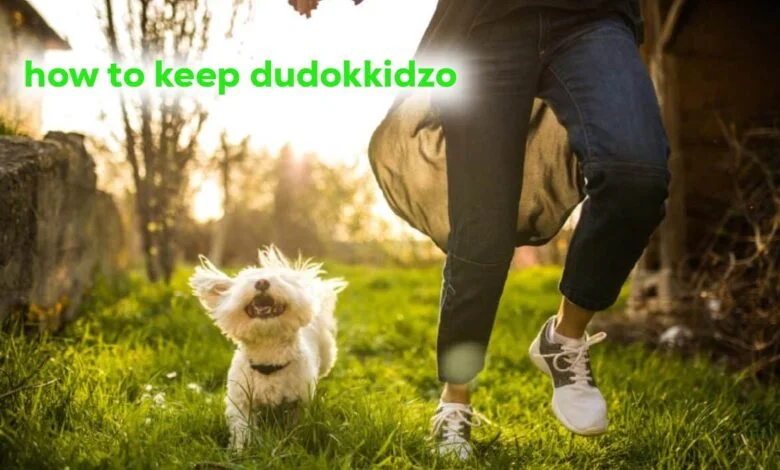In the ever-expanding world of unique pets, one name is steadily rising in popularity—Dudokkidzo. Mysterious, fascinating, and unlike any other, the Dudokkidzo is capturing the imagination of animal lovers around the world. But as intriguing as this creature is, caring for one comes with its own set of responsibilities. In this guide, we explore how to keep Dudokkidzo healthy, happy, and thriving.
What Is a Dudokkidzo?
Before diving into the care process, it’s essential to understand what exactly a Dudokkidzo is. Although little is publicly known about their origin, Dudokkidzos are believed to be a hybrid species resembling a mix between a marsupial and a bird. They have soft feather-like fur, large intelligent eyes, and are about the size of a small cat.
Whether they are mythical or newly discovered, how to keep Dudokkidzo has become a topic of growing interest among exotic pet enthusiasts.
Ideal Habitat: Creating the Perfect Home
A Dudokkidzo thrives in a specific kind of environment. If you’re wondering how to keep Dudokkidzo comfortable and stress-free, begin with their habitat.
-
Temperature & Humidity: They prefer moderate climates, ideally between 68°F to 75°F with at least 50% humidity. A controlled indoor space with a humidifier will work well.
-
Enclosure Setup: A large terrarium or custom indoor enclosure with plenty of vertical space is ideal. Include branches for climbing, padded ledges for resting, and safe hiding spots to reduce anxiety.
-
Natural Elements: Incorporate natural features like moss, soft bark, and artificial vines. Dudokkidzos are known to feel at home in semi-forest environments.
Remember, the first step in how to keep Dudokkidzo happy is giving it a space that mirrors its natural habitat.
Diet and Nutrition
Proper nutrition is key to keeping any living creature healthy, and Dudokkidzos are no exception.
-
Diet Composition: These creatures are omnivores. Their ideal diet consists of 60% fresh fruits (like figs, bananas, and melons), 30% protein (insects, boiled egg bits, or tofu), and 10% leafy greens.
-
Feeding Schedule: Twice a day—morning and evening—is sufficient. Always provide fresh water in a shallow, easy-to-clean bowl.
-
Special Treats: Occasionally, offer a protein-rich treat such as mealworms or a teaspoon of yogurt to boost their immune system.
When considering how to keep Dudokkidzo nourished, think balance, freshness, and variety.
Behavioral Traits and Social Needs
Understanding behavior is a major part of how to keep Dudokkidzo mentally and emotionally well.
-
Social Creatures: Though not aggressive, Dudokkidzos are curious and emotionally sensitive. They bond with their caretakers over time but can get depressed if left alone for extended periods.
-
Play and Stimulation: Keep them entertained with safe chew toys, climbing structures, and light interaction. Puzzle feeders can also stimulate their high intelligence.
-
Communication: They make soft chirping sounds when content and may emit a low hum when anxious. Paying attention to these cues can help in early detection of discomfort or illness.
Being observant is a vital tip in how to keep Dudokkidzo behaviorally balanced.
Grooming and Hygiene
Dudokkidzos are generally clean, but they still require some assistance in grooming.
-
Brushing: Use a soft bristle brush weekly to remove loose fur and keep their coat smooth.
-
Bathing: They do not require frequent baths. Instead, provide a dust-bath area similar to that used by chinchillas. It helps keep their fur clean and dry.
-
Enclosure Cleaning: Clean the enclosure every week and sanitize the food and water bowls daily. A clean space is essential in how to keep Dudokkidzo disease-free.
Common Health Issues and Prevention
Like any pet, Dudokkidzos are prone to certain health problems if not properly cared for.
-
Signs of Illness: Look out for changes in appetite, unusual silence, fur loss, or red eyes. These could signal digestive issues or infections.
-
Veterinary Care: Since Dudokkidzos are rare, make sure your vet has experience with exotic animals. Annual check-ups and prompt attention to health issues can extend their lifespan.
-
Vaccinations: While no specific vaccinations are currently required, some experts recommend regular parasite control measures.
Prevention is central to how to keep Dudokkidzo healthy and active throughout its life.
Legal Considerations and Ethical Ownership
Before getting a Dudokkidzo, it’s important to check local laws and regulations. Some countries require permits for owning exotic pets.
-
Ethical Sourcing: Only adopt from certified and humane breeders or sanctuaries. Never support illegal wildlife trade.
-
Responsibility: Owning a Dudokkidzo is a long-term commitment. Ensure you’re ready for the time, emotional investment, and resources required.
Responsible ownership is a core part of how to keep Dudokkidzo thriving in a human environment.
Final Thoughts
Learning how to keep Dudokkidzo is a journey of discovery, patience, and love. These unique creatures can make incredibly rewarding companions, provided they are cared for properly. From habitat setup to emotional bonding, every detail matters.
If you’re someone who loves challenges, enjoys the company of exotic animals, and is ready to learn every day, then the Dudokkidzo might just be the perfect companion for you. As long as you’re equipped with the right knowledge, you’ll not only keep your Dudokkidzo alive—you’ll help it flourish.


